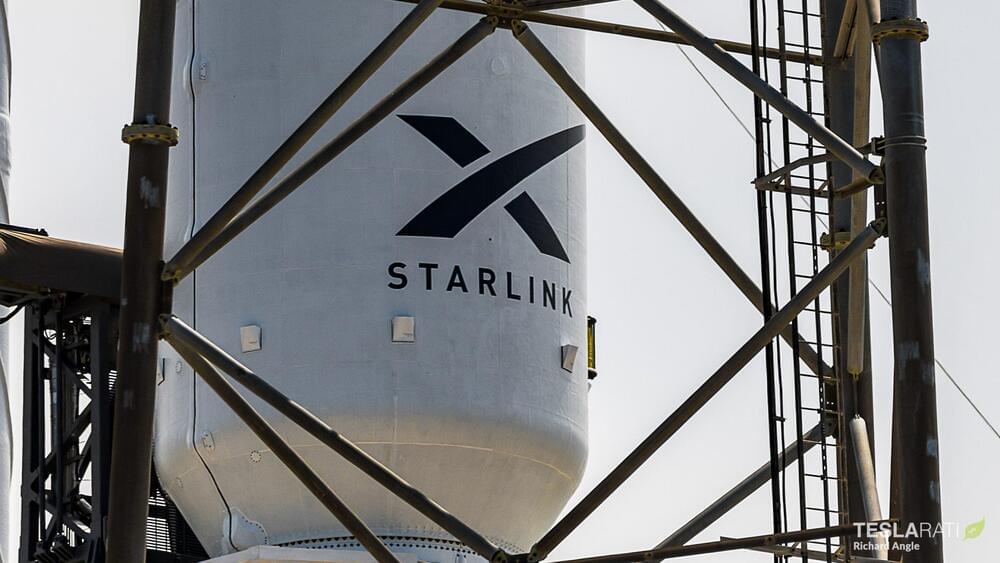Liftoff is scheduled for 2:57 a.m. ET on Wednesday (July 3).



“Automated logistics roads are designed to get the most out of road space by utilizing hard shoulders, median strips, and tunnels beneath the roadway,” Muramatsu explained.
ALSO READ: A New 6G device is Created by Japan That is 20 times Faster Than 5G Technology
The project involves installing automated conveyor belts in tunnels beneath major highways, on above-ground tracks in the middle of roads, and along hard shoulders. This innovative approach aims to optimize existing road space and enhance freight movement efficiency.

Starlink satellites were deployed by SpaceX. Watch multiple views captured by cameras aboard the Falcon 9 rocket second stage. Credit: Space.com | footage courtesy: SpaceX | edited by Steve Spaleta Music: New Age Solitude by Philip Ayers / courtesy of Epidemic Sound.
Start speaking a new language in 3 weeks with Babbel 🎉. Get up to 60% OFF your subscription ➡Here: https://bit.ly/3VPFjJg.
Here is a link to Astroport’s website: https://explorationarchitecture.com/a…
Landing on the moon is difficult due to its uneven surface and the presence of #regolith, a layer of loose, fragmented material. Regolith is problematic because it can damage equipment and pose safety risks during landings. Using regolith to create bricks for building landing pads is a smart use of in situ resource utilization, reducing the need to transport materials from Earth. Astroport Space Technologies in San Antonio, Texas, is developing technology to manufacture these regolith bricks, aiming to create safe, durable landing sites on the moon.
____________________
Thank you for supporting my channel.
My channel started as a way to keep people up to date on the world of SpaceX’s Starlink, the satellite internet service. The channel has grown to include the broader Elon Musk universe, and mainly focus on the development of Starship.
#SpaceX #starship #elonmusk #starbase.
Your support for my channel means a lot. Thanks for watching and if you have any video ideas, shoot me an email, [email protected].
Find me on instagram, @elianainspace.
Order your own 3D printed Starship at:
https://stardesk.peachs.co/a/eliana-s…
Want to support Ellie in Space?
Join my Patreon here: https://www.patreon.com/user?u=47580275
Logo creator: https://www.tonybela.com/

An international joint research team led by the Photonic Network Laboratory of Japan’s National Institute of Information and Communications Technology (NICT) has demonstrated a record-breaking aggregate optical transmission bandwidth of 37.6 THz to enable a new data-rate record of 402 terabits per second in a standard commercially available optical fiber.
This record was achieved by constructing the first optical transmission system covering all the transmission bands (OESCLU) of the low-loss window of standard optical fibers. The system combined various amplification technologies, some developed for this demonstration, including six kinds of doped fiber optical amplifiers and both discrete and distributed Raman amplification.
Novel optical gain equalizers also allowed access to new wavelength bands that are not yet utilized in deployed systems. The newly developed technology is expected to make a significant contribution to expanding the communication capacity of the optical communication infrastructure as future data services rapidly increase demand.

SpaceX has introduced a compact version of satellite internet antennas. Called Starlink Mini, the antenna is portable and can be packed in a backpack. The product is dubbed revolutionary due to being a mobile option for satellite internet customers.
Currently, a limited number of antennas are being offered for just $599 each in an early access release. Starlink Mini integrates the WiFi router right inside the dish and can deliver over 100mbps speed.
Elon Musk claims the product has the power to change the world.

SpaceX was back at the launch pad Sunday with an updated rocket to finish off a Starlink mission it tried to send up earlier this month.
A Falcon 9 on the Starlink 10–2 mission lifted off at 1:15 p.m. from Cape Canaveral Space Force Station’s Space Launch Complex 40 amid cloudy skies with 22 more Starlink satellites for the company’s growing internet constellation that now numbers more than 6,100 satellites in orbit.
The launch came nine days since SpaceX last attempted to knock out the mission on June 14. That attempt had a rare scrub as the countdown clock reached 0 and the rocket was ultimately brought back from the pad to allow for last week’s ASTRA 1P satellite launch to go up instead.



Building the quantum internet could be significantly simplified by leveraging existing telecommunications technologies and infrastructure. In recent years, researchers have identified defects in silicon—a widely used semiconductor material—that hold the potential for transmitting and storing quantum information across the prevalent telecommunications wavelengths. These silicon defects might just be the prime contenders to host qubits for efficient quantum communications.
Exploring Quantum Defects in Silicon
“It’s still a Wild West out there,” said Evelyn Hu, the Tarr-Coyne Professor of Applied Physics and of Electrical Engineering at the Harvard John A. Paulson School of Engineering and Applied Sciences (SEAS). “Even though new candidate defects are a promising quantum memory platform, there is often almost nothing known about why certain recipes are used to create them, and how you can rapidly characterize them and their interactions, even in ensembles. And ultimately, how can we fine-tune their behavior so they exhibit identical characteristics? If we are ever to make a technology out of this wide world of possibilities, we must have ways to characterize them better, faster, and more efficiently.”